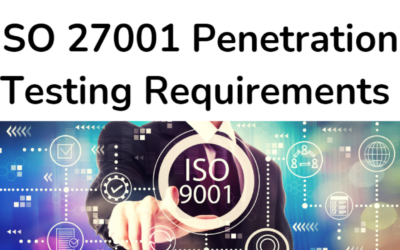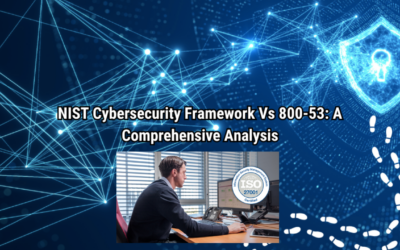ISO 27001 Beratung is an internationally recognized standard for information security management systems (ISMS). It defines the requirements that help organizations of all sizes and industries protect their information assets effectively. In a world where cyberattacks and data breaches are becoming increasingly common, ISO 27001 consulting is gaining importance. This article explores why ISO 27001 consulting is essential, the benefits it offers, and the typical consulting process.
What is ISO 27001 Beratung ?
ISO 27001 is a standard first published in 2005 by the International Organization for Standardization (ISO) and the International Electrotechnical Commission (IEC). The standard provides a systematic approach to managing sensitive information by ensuring it is protected from threats. The main objectives of ISO 27001 are:
- Confidentiality: Ensuring that information is accessible only to authorized individuals.
- Integrity: Ensuring that information is accurate and complete.
- Availability: Ensuring that information is accessible when needed.
ISO 27001 is particularly important for organizations that handle sensitive data, such as financial service providers, healthcare organizations, or companies operating in the cloud.
Why ISO 27001 Consulting is Important
Although implementing ISO 27001 offers significant benefits, the process can be complex and time-consuming. Professional consulting can help organizations overcome challenges and make implementation more efficient and effective. Here are some reasons why ISO 27001 consulting is important:
- Expertise: Consultants bring knowledge and experience to help avoid common pitfalls.
- Time-Saving: A structured approach accelerates the implementation process.
- Customization: Consultants tailor the ISO 27001 requirements to the specific needs and risks of the organization.
- Certification Preparation: Consultants ensure that all requirements are met to achieve successful certification.
Benefits of ISO 27001 Consulting

Professional consulting offers numerous benefits that go beyond certification. Here are some of the key advantages:
- Enhanced Security Standards: By identifying and assessing risks, organizations can significantly improve their security measures.
- Compliance: ISO 27001 helps companies meet legal and regulatory requirements such as GDPR (General Data Protection Regulation).
- Competitive Advantage: An ISO 27001 certification signals to customers and partners that information security is taken seriously, fostering trust.
- Cost Reduction: By minimizing security incidents, organizations can reduce costs related to data loss and recovery measures.
- Culture of Security Awareness: Implementing an ISMS promotes a corporate culture that emphasizes security awareness and accountability.
The ISO 27001 Consulting Process
ISO 27001 consulting typically involves several phases to ensure that the standard is implemented effectively. Here is a typical consulting process:
- Initial Assessment:
- An analysis of the current state of information security within the organization.
- Identification of weaknesses and gaps compared to ISO 27001 requirements.
- Planning:
- Development of an implementation plan that defines specific measures, responsibilities, and timelines.
- Setting objectives and the scope of the ISMS.
- Risk Assessment:
- Identification and evaluation of risks that threaten information security.
- Development of strategies to mitigate risks.
- Implementation:
- Implementation of defined security controls and measures.
- Training employees to ensure they understand and comply with new security policies.
- Internal Audits:
- Conducting internal audits to evaluate the effectiveness of the ISMS and identify areas for improvement.
- Certification Preparation:
- Preparing for the external audit by an accredited certifier.
- Addressing any weaknesses identified during internal audits.
- Continuous Improvement:
- After certification, the focus shifts to continuously improving the ISMS to address new threats and challenges.
Challenges in Implementing ISO 27001
Implementing an ISMS according to ISO 27001 is not without challenges. Some of the most common obstacles include:
- Complexity: The standard involves numerous requirements that can be overwhelming for smaller organizations.
- Resistance to Change: Employees may resist new processes and policies, especially if they are perceived as additional workload.
- Costs: Implementation can be costly, particularly for small and medium-sized enterprises (SMEs).
- Resources: It can be challenging to allocate sufficient qualified personnel or time for implementation.
- Technological Challenges: Integrating new security solutions may pose technical hurdles.
Tips for Successful ISO 27001 Implementation

Here are some tips to ensure the successful implementation of ISO 27001:
- Management Commitment: Support from top management is crucial to allocate necessary resources and promote a security culture.
- Training: Invest in employee training to ensure they understand the importance of information security.
- Clear Communication: Clearly explain the benefits of ISO 27001 implementation to minimize resistance.
- Iterative Approach: Take a step-by-step approach and focus first on the most critical security risks.
- External Support: Engage professional consultants to bring expertise and experience to the process.
Conclusion
ISO 27001 is an essential standard for organizations looking to enhance their information security and protect their data from threats. Professional ISO 27001 consulting can significantly simplify the implementation process and ensure the standard is implemented efficiently and effectively.



0 Comments